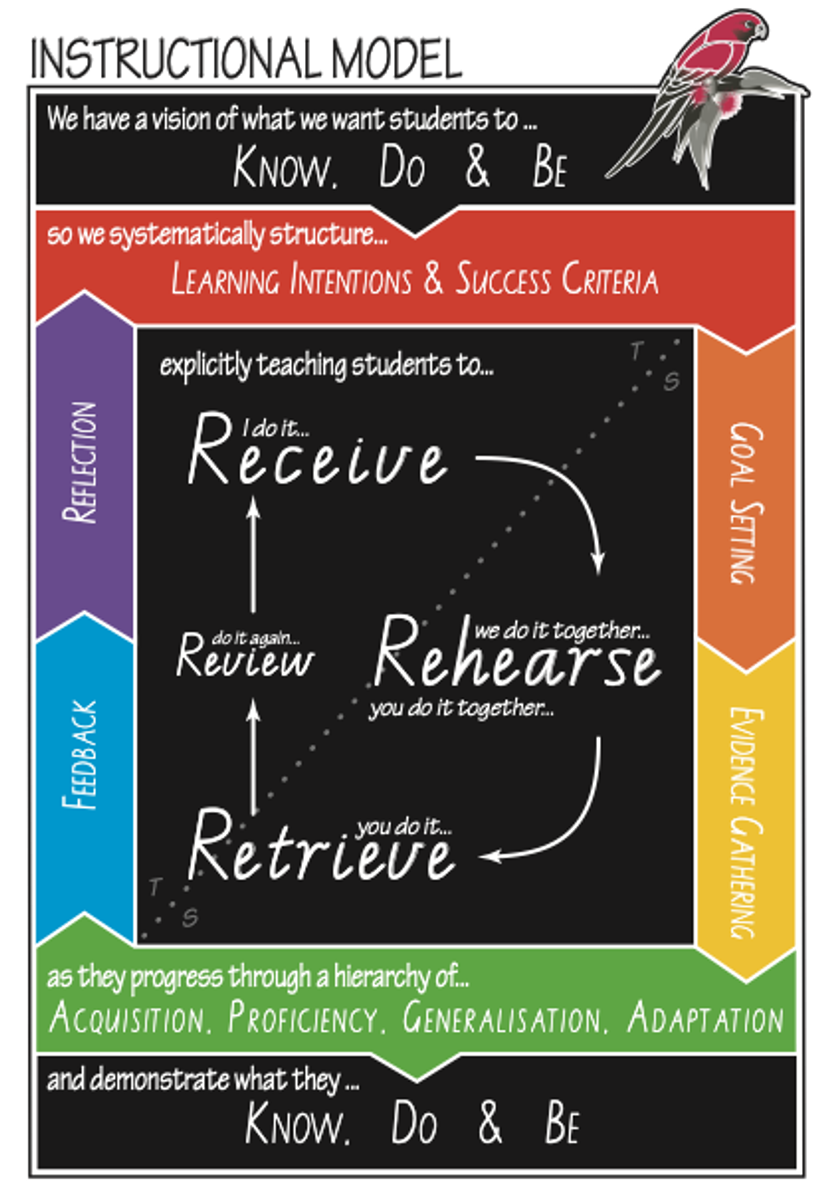From Daniel
Our Principal

From Daniel
Our Principal
I am often asked about Homework, and I often find that people have widely varying opinions on the topic. This is an area we are working to improve.


As I have shared often in this newsletter, our focus this year has been on building explicit instruction and consistent routines across the school. We have worked hard to improve our instructional model, based on sound educational research.
Throughout the year, our teachers have trialled a variety of homework activities. We understand that there has been some confusion on the processes and expectations of this homework. In preparation for regular, school wide homework expectations from the beginning of 2026, teachers will be implementing consistent and regular homework routines in each class during next term.
In considering the purpose of homework, it is easiest to first explain what the purpose homework is not. Effective homework is not designed to build a study habits. Whilst this is important later in school life, it is not necessary or practical to begin building these habits in primary school. Effective homework is not an opportunity to learn new ideas. Students should receive information in class and develop their understanding with the support of their teacher, not at home. Effective homework is not an opportunity to check student understanding. Again, this should be done in class, with their teacher and with immediate feedback.
Research suggests two main factors through which homework adds value to learning and has a positive purpose:
Purpose – Rehearsal
There is mixed research on the value of homework, particularly in primary school years. What is certain is that homework is most effective when it involves rehearsal. Students should be practising skills they have already learned. New learning should always be done at school. We guide students before we expect them to work independently. We rehearse before we retrieve. A block of 10-15 minutes is set aside each week to hand-out and rehearse the homework tasks being set.
Purpose - Retrieval
Completing tasks at home not only provides an opportunity for rehearsal, it is also an important part of our spaced retrieval approach. The concepts, skills and ideas that students practise at home will have already been taught at school, and the tasks set will include ideas from the previous lesson, the previous week and even the previous month. An opportunity for retrieval of the skills and knowledge rehearsed as part of the homework tasks is provided each week during a Daily Review block. This retrieval task at school also builds accountability for the rehearsal at home.
Types of Homework
Homework should not bring stress to the student or to the family. The type of homework set will match the student’s abilities and will have been rehearsed at school prior to being assigned. Parents can play a key role in building literacy skills in their children by:
Reading every night (repeated reading is of the same book is very beneficial)
Writing often (playing writing games, making lists and writing stories)
Supporting school set rehearsal and retrieval tasks (10mins, three times a week). This will include decodable texts and rehearsal practice sheets from Foundation upwards, written tasks from Year 2, online activities using Freckle from Year 3 and recording the books they read on Accelerated Reader.
Homework Expectations per Level
Homework expectations build as students move through the school:
Foundation & Juniors:
Reading with a parent (picture book) – daily, repeated
Reading to a parent (decodable) – daily, repeated, spaced review
Homework Practice Booklets – weekly, spaced review
Reading to self (interest) – daily, probable readers only
Middles & Seniors
Reading to self/parent – daily, extended
Homework Practice Booklets – weekly, spaced review
Freckle – 20mins per week
Homework Cycle
Over Term 4, we will be implementing a cycle that will involve:
Fridays - homework tasks are handed out and rehearsed in class. These tasks will be based on topics covered in the week previous to the one in which the homework is handed out.
Wednesdays - homework tasks are reviewed in class with students using their retrieval skills to share their homework with a partner in class.
In this way, students will have practised their homework in class and understand what is expected of them when they do it again at home. They will also be accountable for completing the homework, not simply submitting it their teacher but sharing and repeating the same activities with a peer in class. This repetition of learning has been shown to have a strong positive impact on supporting retention of learning and building long term memory.
If you have any queries at all about this approach to homework, please discuss them with your child's teacher at 3-Way Conferences which will be held in the second week of next term. (Bookings will be open soon).
We are looking to finalise our planning for 2026 very soon. If you, or anyone you know, have a child looking to enrol at Kilsyth Primary School for next year it would be very helpful if you could please contact the office on 9725 4320 as soon as possible. We know some current families have younger siblings who are looking to enrol, however have not yet completed the paperwork.
I am always happy to meet with any family who would like a tour or more information regarding how our school operates. I would love to speak with you in person about our approaches here at KPS. To book a meeting, or a tour, simply go to: https://linktr.ee/danielgooding .


Daniel